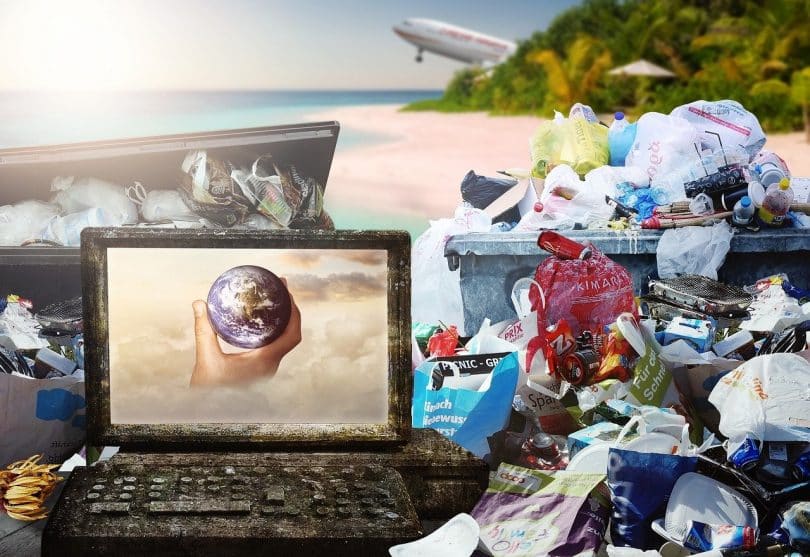“Recycle, reuse, reduce” is your credo and you think you already do everything you can to save this planet?
Think again, because with alarming rates of global warming, which are at the centre stage at the climate change summit COP26 in Glasgow this November 21, it is time to step up the recycling game.
The recycling system can be quite confusing and complex, but the United Kingdom has shown a positive trend in the processing of recycling materials.
So, let’s see how you can improve your recycling skills?
Contents
How To Recycle Which Materials?
Generally, most of the UK homes have their local waste-collecting local authority service coming to collect the waste at their doorstep. If it’s for an apartment building, whether council or privately-owned, there would be a communal recycling point where one can drop their items for recycling.
Most of the cities, towns, and villages in the United Kingdom will have small roadside recycling collection points and local waste collections once per week. Here materials like glass, tins, and paper can be recycled.
To recycle larger items, you’ll need to visit your nearest Household Waste and Recycling Center, which offers a mix of recycling services.
So, what can you do to recycle your junk adequately?
1. Learn about your Rubbish Materials for Recycling
Before you bin all the waste in your house, it would be advisable to contact the local council or get a consultation from a trusted rubbish removal services company. There are different methods and procedures to remove or recycle bulky items, office items, and other household items that can potentially be hazardous. Learning how to recycle which rubbish materials would help you being more sustainable and understanding how your local rubbish collections work.
2. Recycling different Household Waste Materials
- Paper: Paper is likely to be the most used item in your household ranging from notebooks to cardboard boxes. The good news is that everything containing paper can be recycled. You can recycle most paper items along with your general waste, but while doing so, make sure that they are not stained with paint, food, or any other unsuitable materials. Napkins, sanitary towels, and other personal hygiene products should not be recycled, but go into your general junk.
- Plastic: The plastic pollution problem is so big, because only a few types of plastics can be recycled. Make sure to check the on-pack recycling labels, which indicate which type of plastic you are using. If the plastic is recyclable, then make sure it is clean before adding it to the recycling bin.
However, some plastics, such as cling film (saran wrap), plastic sticky tape, and chemical bottles cannot be recycled. Check whether there are any places for submitting such items or hand them over to the rubbish removal experts that will do that for you.
- Glass: Glass is usually easily recycled, and most local authorities collect glass containers. You should clean all your containers before placing them in the glass recycling bin. You can also look for glass recycling facilities (called bottle banks) at your local recycling center or grocery store.
- Metal: Metal waste items like drink cans, food tins, and even aluminum foil are easily recyclable materials. You just need to ensure they are clean and free of food particles, so that you can dispose of them in your recycling collection.
- Clothes: You can recycle clothes or cloth materials at clothing banks and clothing collection points such as containers. You can also donate them to a charity shop if they are in a good condition and often waste removal companies take care of that.
3. Separating Rubbish Correctly
Many household junk items can also be recycled, but at times the local rubbish collection services would refrain from collecting such items. This could be because they haven’t been separated and sorted adequately, e.g., furniture containing e-waste. You are then left to your own devices and clearing such items would be difficult as you wouldn’t know how to separate and sort the different parts correctly, so they are accepted by the recycling centre. In this case your best option is to get a consultation from a professional same day junk removal service.
4. Recycling Appliances And E-Waste
You can get rid of your old electronic appliances and e-waste items in the right places such as your communal recycling centre. Here are some of the common items that can be recycled:
- Batteries: Some authorities offer the collection of batteries as well as recycling of batteries. Check online if your local council offers these services or find a local recycling point where you can recycle batteries such as supermarkets for example.
- Mobile Phones: You can resell or gift your mobile phones to charity or deposit them in a small electronics container at your nearest public recycling dump. But because they contain many different materials, make sure where you dispose them follow the environment agency guidelines for recycling e-waste.
5. Special Tricks for Recycling
- Research your Recycling Options: Wherever you move to or live, make sure that you are familiar with the recycling policies and procedures in that area.
- Keep it clean: It is a must to wash out all recycling items that end up in the recycling bin. This is basic common sense and supports adequate recycling, so don’t be lazy.
- Sort Your Waste: Make sure you arrange and sort everything you dispose of. You can mark your junk materials, so that it is easier and more efficient to place them with the right bins. Professional waste removal experts can do this for you.
Conclusion
Recycling may at times be burdensome, but such small steps will help to counteract global climate change and pollution that is threatening all our livelihoods on this planet. Follow the above listed tips and support the adequate junk removal and recycling practices. Ideally, you should cut down your household waste and use reusable items and avoid using non-recyclable items, especially unrecyclable plastics. Get on the right waste management track today.







